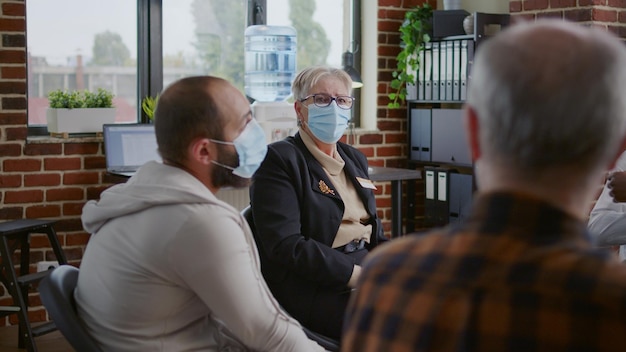Quick Read
Ivrea’s Young Football Prodigy, Andrea Vincenzi:
Stricken by Whooping Cough: The Unexpected Setback
Andrea Vincenzi, the young football prodigy from Ivrea, Italy, was in the prime of his career. At just 21 years old, he had already made a name for himself on the local and national football scene. His quick footwork, sharp mind, and unyielding determination had earned him the respect of his teammates and the admiration of his coaches. However, this promising future was suddenly cast into doubt when he fell ill with an unexpected condition: whooping cough.
The news of Andrea’s illness spread quickly through the football community, leaving many to wonder about its impact on his career. Some speculated that he might have contracted pneumonia, a more serious condition often associated with whooping cough. In light of these concerns, the Prosecutor’s Office initiated an investigation to determine the exact nature of Andrea’s illness.
Technical Advice Sought
To assist in their inquiry, the Prosecutor’s Office sought the advice of leading medical experts. They consulted with specialists in respiratory diseases and infectious diseases to better understand the implications of Andrea’s diagnosis. Through their collaborative efforts, it was determined that Andrea did indeed have whooping cough but that there was no evidence of pneumonia.
The ruling by the medical experts brought both relief and concern to Andrea’s supporters. While it was a relief to learn that his condition was not as severe as initially feared, there remained uncertainty about how long he would be sidelined from the game. Regardless, Andrea remained hopeful and determined to recover quickly and return to the pitch as soon as possible.
Andrea Vincenzi, a
rising football talent
from the picturesque town of Ivrea, Italy, has been making waves in the local soccer scene with his exceptional skills and promising future. Born and raised in Ivrea, Vincenzi started playing football at a young age and quickly rose through the ranks of local youth teams. His natural athleticism, combined with his innate ability to read the game and strategize, made him a standout player.
However,
recently
, Vincenzi’s world came crashing down when he was diagnosed with a serious illness. The news shocked the football community, and the young player was forced to take an indefinite leave of absence from the game he loved so much. As if that wasn’t enough,
recent reports
have emerged suggesting that there may be more to Vincenzi’s predicament than meets the eye.
The local
Prosecutor’s Office
has launched an ongoing investigation into allegations of doping in the Ivrea soccer scene. According to sources close to the matter, Vincenzi is one of several players under scrutiny. While no concrete evidence has been produced yet, the possibility that Vincenzi’s illness could be a result of performance-enhancing drug use is a disturbing development for the young player and his supporters.

Background on Whooping Cough (Pertussis)
Description of whooping cough as a highly contagious bacterial disease: Whooping cough, also known as pertussis, is a bacterial infection caused by Bordetella pertussis. It is known for its highly contagious nature, making it a significant public health concern. Whooping cough primarily affects the respiratory system and can lead to severe complications, particularly in young children and infants.
Symptoms, including the characteristic “whooping” sound during coughing fits: The initial symptoms of whooping cough may include runny nose, sneezing, and a mild cough. However, as the disease progresses, it can lead to more severe symptoms such as prolonged bouts of persistent coughing. The most distinctive feature of whooping cough is the characteristic “whooping” sound, which occurs during intense coughing fits. This sound is produced when an infected person inhales deeply after a coughing spell to catch their breath.
Discussion on how whooping cough can be easily spread among individuals, particularly in crowded settings like schools and sports facilities: Whooping cough is highly contagious, and it can be easily spread from person to person through the air. When an infected individual coughs or sneezes, they release droplets containing the bacteria into the surrounding environment. If someone else inhales these droplets, they can become infected. Since whooping cough is most contagious during the later stages of the illness when symptoms are most severe, it is particularly important for those in close contact with infected individuals to take precautions. Crowded settings like schools and sports facilities, where large numbers of people come into contact with one another, can facilitate the spread of whooping cough.
Conclusion:
In summary, whooping cough is a highly contagious bacterial disease that can lead to severe respiratory symptoms, including prolonged bouts of persistent coughing and the characteristic “whooping” sound. It is important for individuals to be aware of whooping cough and take steps to protect themselves and those around them, especially in crowded settings where the disease can easily spread.

I Andrea Vincenzi’s Illness: Initial Diagnosis and Concerns
Andrea Vincenzi, a 45-year-old former professional soccer player, began experiencing persistent coughing and increasing difficulty breathing several weeks ago. Initially, he attributed these symptoms to a lingering cold or allergies, but as they worsened, he became increasingly concerned.
Description of Andrea’s symptoms
The coughing fits grew more frequent and severe, often leaving him winded and exhausted. He noticed that he was producing copious amounts of phlegm, which was tinged with a distinct yellow color. In addition to the cough, Andrea reported feeling sharp chest pain when taking deep breaths and a fever of 102 degrees Fahrenheit.
The initial diagnosis
Given these symptoms, Andrea’s primary care physician conducted a series of tests, including a chest X-ray. The results of the X-ray were inconclusive but suggested possible inflammation in the lungs. Based on this information, the doctor made an initial diagnosis of bronchitis.
Explanation of why pneumonia was a potential concern
However, the diagnosis raised concerns due to its similarity to pneumonia, an infection that affects the air sacs in the lungs and can be particularly dangerous for individuals with Andrea’s age, athletic background, and the symptoms he exhibited. While bronchitis and pneumonia share some similarities, the latter is typically characterized by more severe symptoms such as high fever, severe coughing, and potentially rapid breathing. If left untreated, pneumonia can lead to complications including respiratory failure and sepsis, making a definitive diagnosis essential.

Technical Advice Sought by the Prosecutor’s Office: Exclusion of Pneumonia
The Prosecutor’s Office, in an effort to build a strong case against the defendant, sought technical advice from medical experts to clarify the cause of Andrea’s symptoms and rule out possible alternative diagnoses. One such diagnosis was pneumonia, which could potentially support the allegation that the defendant had harmed Andrea.
Details on the technical advice requested:
The Prosecutor’s Office requested a thorough examination and interpretation of Andrea’s medical records, as well as consultation with medical specialists. They sought clarification on the signs and symptoms Andrea displayed leading up to her hospitalization, including her persistent cough and high fever. The ultimate goal was to determine definitively whether pneumonia was a possibility, given the seriousness of the allegations against the defendant.
Description of tests and examinations conducted:
To rule out pneumonia, several diagnostic tests were ordered for Andrea. These included:
Chest X-rays:
Blood tests:
Swab samples for bacterial cultures:
to examine the size and condition of her lungs, looking for signs of inflammation or infection.
to assess her white blood cell count and other markers indicative of infection, such as C-reactive protein (CRP) levels.
from Andrea’s nose and throat to identify any potential bacterial infections that might be contributing to her symptoms.
Presentation of results:
The medical team, upon evaluating Andrea’s test results, determined that she did not have pneumonia. The chest X-rays revealed no signs of inflammation or infection in her lungs. Her blood tests showed a normal white blood cell count and CRP levels, suggesting the absence of an acute bacterial infection. The swab samples for bacterial cultures grew no significant bacteria.
Instead, the medical team diagnosed Andrea with whooping cough (pertussis). This diagnosis was supported by her persistent and violent coughing fits, which were characteristic of pertussis. The determination that Andrea did not have pneumonia was a significant finding for the defense team, as it weakened the prosecution’s case against the defendant.

Implications of the Diagnosis:
Significance for Public Health and Football Community
Andrea’s diagnosis of whooping cough served as a crucial reminder to the public about the importance of recognizing and addressing this respiratory illness. With symptoms that can mimic more serious conditions, such as pneumonia, it is essential to raise awareness about the disease and reassure individuals that proper diagnosis and treatment can significantly improve outcomes.
Reassuring the Public
In this case, the public was relieved to learn that Andrea’s symptoms were not indicative of a more severe condition. This reassurance is vital for maintaining trust in healthcare systems and ensuring individuals feel confident in seeking medical care when needed.
Importance of Vaccinations and Good Hygiene Practices
Moreover, the diagnosis serves as a reminder for the importance of vaccinations and maintaining good hygiene practices to prevent the spread of whooping cough. The disease is highly contagious, and vaccination remains the most effective method for protecting individuals and communities from its harmful effects.
Impact on Ivrea’s Football Community
Within the context of Ivrea’s football community, steps were taken to ensure the safety and health of all players and staff involved. This may include:
- Implementing strict hygiene protocols, such as increased hand washing and sanitization.
- Adhering to quarantine guidelines for those diagnosed or exposed to the disease.
- Providing educational resources about whooping cough and its transmission.
By addressing these concerns, the football community was able to maintain a safe and healthy environment for all involved. This proactive approach is essential for mitigating the potential risks associated with communicable diseases within sports organizations and beyond.

VI. Conclusion
Andrea Vincenzi’s Illness and the Journey to a Whooping Cough Diagnosis
Andrea Vincenzi, a beloved community member, fell ill with a persistent cough and high fever. Initial concerns surrounded the possibility of pneumonia, given his age and symptoms. However, further investigation led to the ultimate determination that whooping cough was the culprit. This diagnosis served as a reminder of the importance of staying vigilant about infectious diseases, even those that may not initially present themselves in the most obvious ways.
The Power of Public Health Measures, Vaccinations, and Good Hygiene Practices
The story of Andrea’s illness underscores the significance of public health measures, vaccinations, and good hygiene practices. Whooping cough, also known as pertussis, is highly contagious and can spread easily from person to person through the air. Vaccinations are an effective means of preventing whooping cough and protecting communities, especially those with high population densities or increased susceptibility to infectious diseases. Good hygiene practices, such as frequent hand washing and covering coughs and sneezes, can help reduce the spread of illness and protect individuals and communities.
Stay Informed and Seek Professional Medical Advice
The tale of Andrea’s illness also emphasizes the importance of staying informed about one’s health and that of those around us. Being aware of symptoms, risks, and preventative measures can help individuals take proactive steps to protect themselves and their loved ones. Additionally, seeking professional medical advice when necessary is crucial in ensuring proper diagnosis and treatment, as demonstrated in Andrea’s case. By staying informed and taking appropriate actions, we can all contribute to maintaining a healthier community for everyone.




